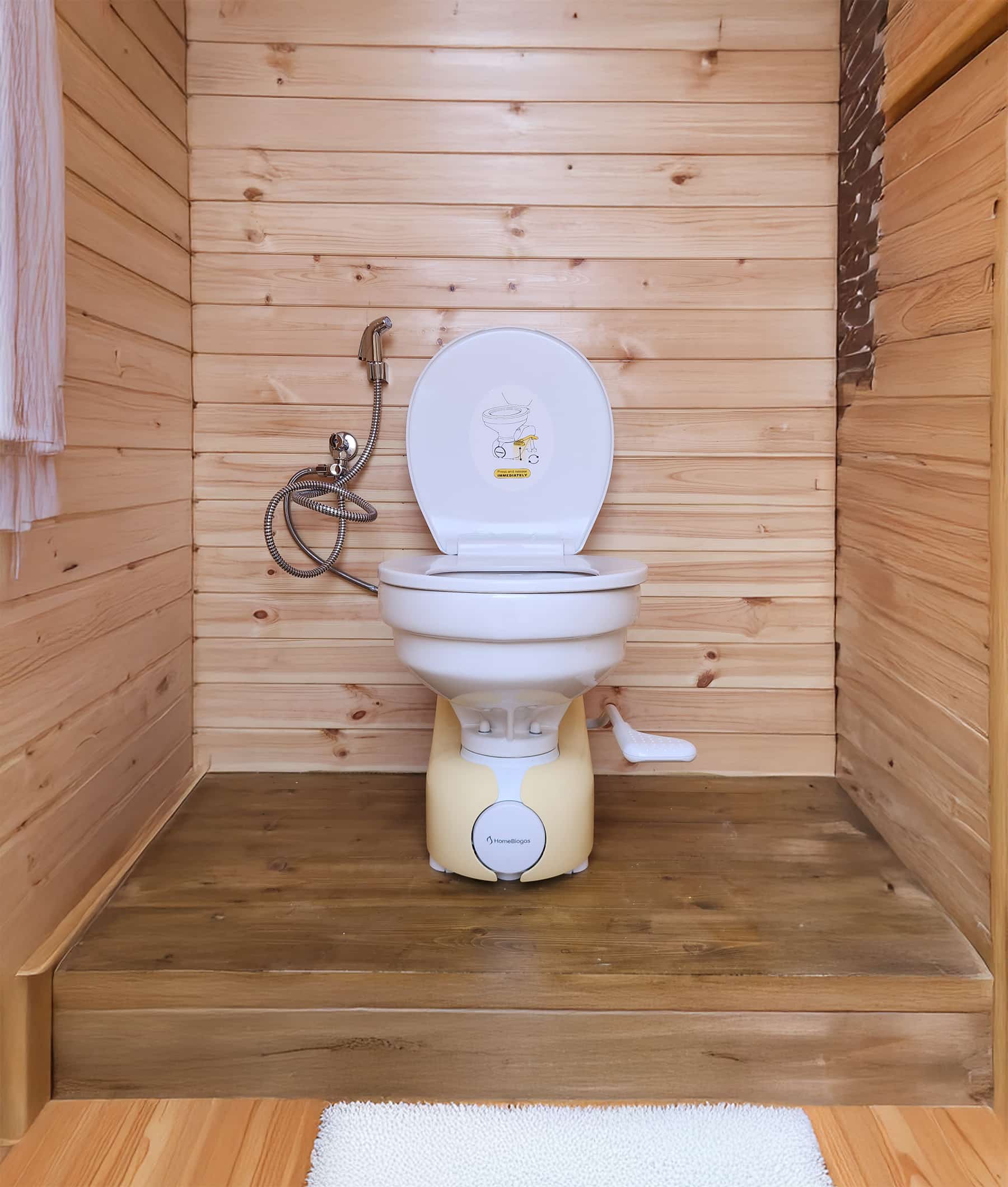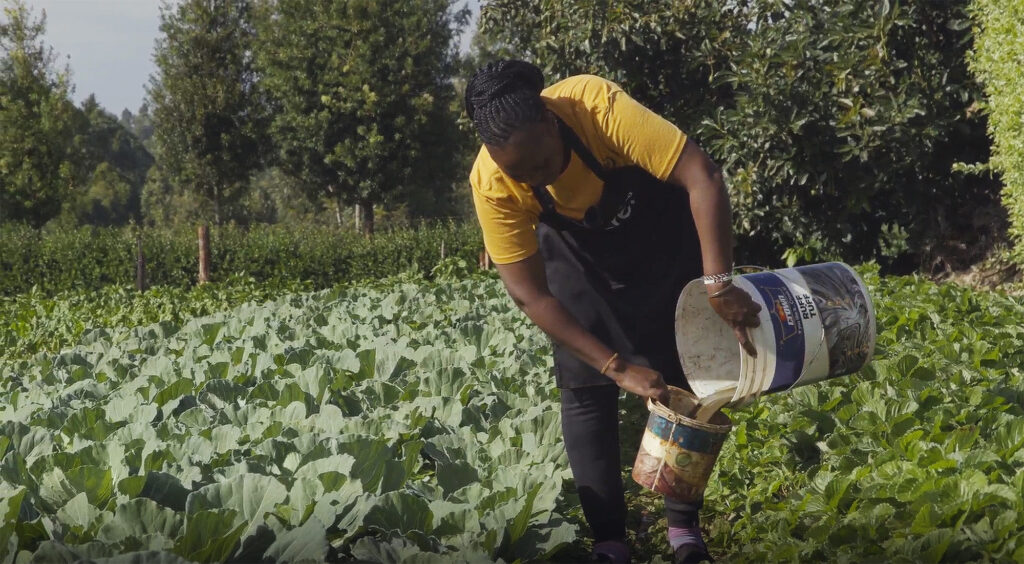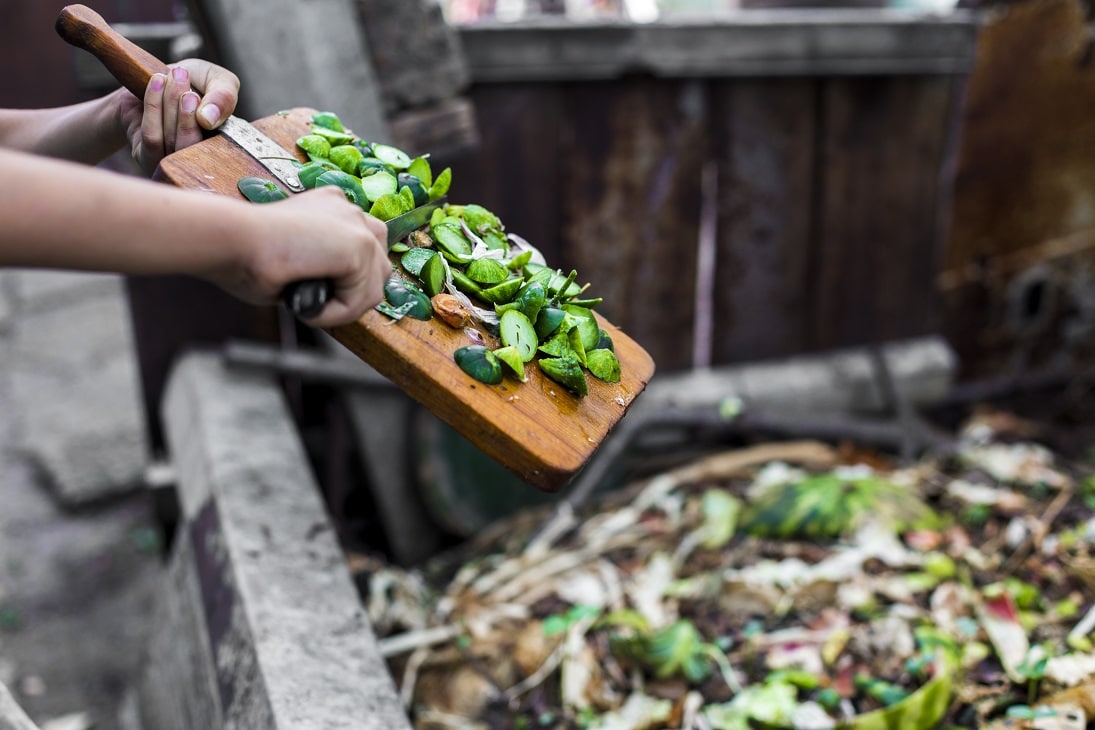
The Definitions: Compost And Fertilizer
Compost is a mix of substances and organic matter used to enrich and enhance soil, usually made by decomposing plants, food waste, and other organic materials. Compost supplies the earth with nutrients like nitrogen, phosphorus, and potassium and improves its ability to keep these nutrients longer.
On the other hand, fertilizers are organic or chemical compounds used to nourish plants. The primary nutrients are nitrogen, potassium, and phosphorus, all vital plant minerals, so farmers regularly use fertilizers to boost crop productivity.
Compost and fertilizer are complementary, and both play an essential role in keeping your crops and the soil healthy.
Compost vs. Fertilizer: What’s the Main Difference?
The main difference between compost and fertilizer is their purpose. Compost nourishes the soil, while fertilizers provide nutrients for the plants. Consequently, composter utilization is flexible and general, while fertilizer quantities and composition are more rigid to match the exact needs of the plants.
Adding fertilizer to crops increases the nutrient supply in the soil, but all the substances will fulfill the needs of fast-growing plants. The soil food web doesn’t significantly benefit from the fertilizer’s presence. Therefore, compost must be used to maintain the soil’s balance and health.
Both fertilizers and compost can be organic or enriched with chemical substances. Organic materials are more likely to preserve the soil’s composition, and all chemical products should be used with care, whether fertilizer or compost. But if you’re looking to save money, organic fertilizer is a cost effective way to grow healthy crops.
What is the Purpose of Using Compost and Fertilizer?
The soil is home to many living organisms — we can find between 10,000 and 50,000 species in less than a teaspoon of soil. Organic fertilizer obtained by composting organic matter is the best resource for maintaining a healthy ecosystem long-term.
Using compost as fertilizer feeds and protects the soil, as it inoculates it with beneficial bacteria and life.
The benefits of using compost are multiple:
- It supports the retention of moisture.
- It helps suppress plant diseases and pests.
- Regular use of compost reduces the need for chemical fertilizers.
- It supports the growth of beneficial bacteria and fungus that decompose organic materials into humus.
- It reduces landfill methane emissions and minimizes carbon footprint.
Compost – Does it Work as an Organic Fertilizer?
Yes, compost can work as organic fertilizer (or biofertilizer), but there are things to consider when deciding not to add fertilizer to your crops besides the compost.
Compost keeps the soil healthy, which means plants will likely thrive in your garden without any additions. The downside is that compost releases nutrients slowly over time, while chemical fertilizer provides a boost and accelerates growth in a short period.
If you consistently use compost and maintain soil health, your plants won’t require fertilizer. Instead, they’ll get their nutrients as they’re slowly released into the ground by compost. A rapid feed is rarely necessary for a healthy garden, where the soil is well-balanced and can provide nutrients on its own.
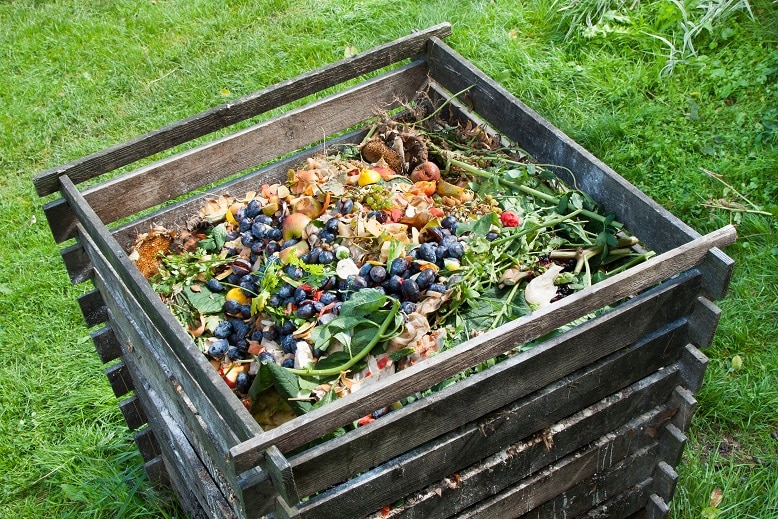
Pros and Cons of Using Compost
Compost advantages:
- Compost improves soil quality and structure.
- It is a relatively cheap solution to improve soil qualities.
- Compost can act as a completely organic fertilizer.
- Composting reduces waste.
- It is environmentally friendly and simple to make.
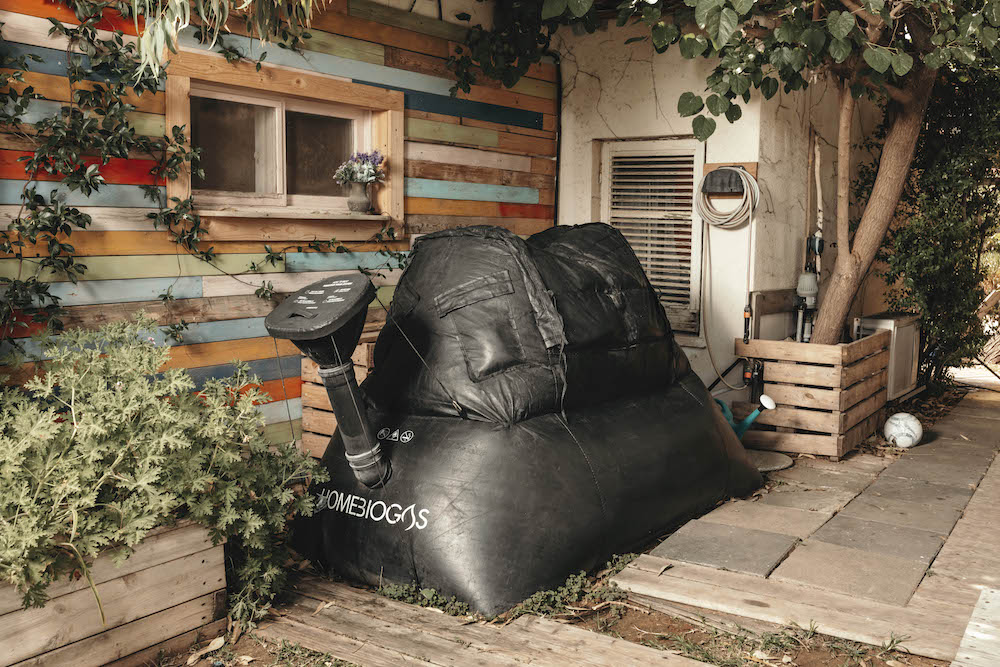
HomeBiogas 2
Designed for the next generation of green innovation.
Compost disadvantages:
- The quantity and quality of the compost depend on the type of organic waste available.
- The composting pile can attract pests.
- Composting requires time, effort, space, and constant attention.
- Neighbors might not like the odors coming from the compost pile.
How Does Fertilizer Help to Improve Compost?
Fertilizer can be helpful in your compost when added in limited quantities. Fertilizer and minerals in the compost pile support bacteria while also improving compost quality — thanks to increased amounts of nitrogen, phosphorus, and potassium.
These substances are vital to plant growth and the health of the composting pile, as bacteria need large amounts to get the energy necessary for breaking down the organic matter and turning it into compost.
The secret when using fertilizer to improve compost is adding small quantities and compensating with matching amounts of carbon-rich materials. Otherwise, the high amounts of nitrogen present in fertilizer will likely unbalance the chemical composition of the composting pile.
What Fertilizers Can You Consider Using?
- Alfalfa meal. It’s a 100% natural fertilizer obtained from fermented alfalfa plant seeds. Its composition includes an average of 2-3% nitrogen and many helpful micronutrients that enrich soil quality. Your composting pile will get an addition of calcium, magnesium, sulfur, manganese, iron, copper, boron, and zinc to enrich the compost. Moreover, this fertilizer has a bright, airy appearance and an earthy scent.
- Dolomite. This soil enhancer has a high calcium and magnesium content, being chemical-free. Added to your compost, it helps neutralize acidifying effects of fertilizers and water on the soil, supporting plant growth.
- Hydrated sodium calcium aluminosilicate (HSCAS), also known as azomite. It’s a mineral-rich rock dust mined in Utah from an ancient deposit formed by a volcanic explosion. This product is nitrogen- and phosphorus-free but provides many micronutrients and minerals that need to thrive.
- Blood meal. It’s an organic nitrogen source, an excellent alternative to synthetic fertilizers inside your composting pile. Blood meal is known to improve soil quality and help bring back its balance when growing season is over. It has a nitrogen concentration of 13.25%, a phosphorus level of 1.0%, and a potassium content of 0.6%. Thanks to its high amounts of nitrogen, blood meal is best used for growing nitrogen-hungry plants, such as lettuce, kale, or Brussel sprouts.
- Bone meal. This fertilizer, too, is a chemical-free product that enhances the soil’s overall structure and quality, provides food for soil bacteria and can enrich compost. It contains only trace amounts of nitrogen but is rich in micronutrients, including magnesium, zinc, and iron – all essential for improving plant health and microbial growth. One significant advantage of using bone meal is that if too much is unintentionally applied, it will not significantly impact your compost pile.
Can You Use Synthetic Fertilizer?
Scientists can’t seem to agree on whether synthetic fertilizer impacts soil health more than plant growth in the long run. So, it ultimately depends on personal choices, goals, and lifestyle. Either way, the same principles apply — you must pay attention to the quantities of fertilizer you use to ensure balance.
Pros and Cons of Using Fertilizer
Fertilizer advantages:
- It accelerates plant growth and enhances the plants’ ability to protect themselves from pests.
- It increases crop efficiency.
- It improves crop quality.
- It helps balance soil pH while providing plants with all the nutrients necessary for growth.
- It slows down soil erosion.
Fertilizer disadvantages:
- Some fertilizers can pollute soil and groundwater.
- Plants may grow too fast, and possible harmful components can end in the food.
- Fertilizers can change the ecosystem.
- Incorrect usage and overfertilization can cause damage to crops and soil.
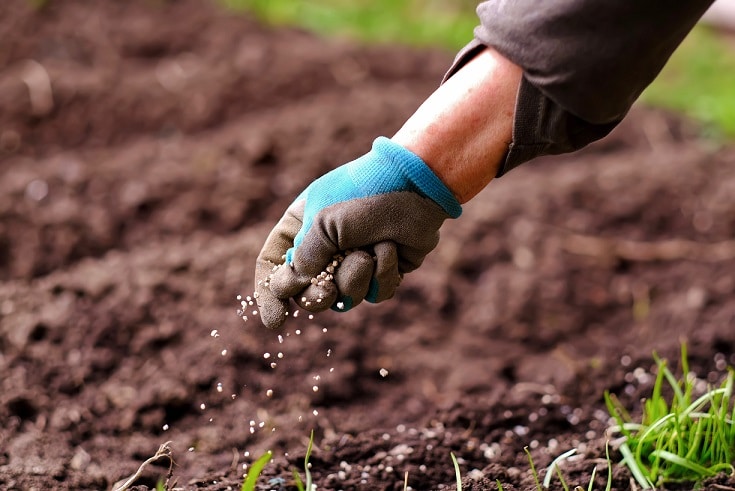
When Does Compost or Fertilizer Fit Better?
As a general rule, compost should be added annually during fall, so it starts releasing nutrients by the following spring. On the other hand, fertilizer is better used in spring and when the plants are at the peak of their growing cycle. Some plants might require an extra fertilizer boost throughout the year to maximize productivity.
Compost and fertilizer work best together, completing each other’s qualities. However, it’s crucial to test the soil before enriching it with any nutrients. Knowing the soil’s pH and specific needs can help you make better decisions around what products to use and when to apply them to better serve the crops and the soil.
Conclusions
Compost feeds the soil, and fertilizer boosts plants. It’s a way to get the short-term and long-term benefits at once. Moreover, adding fertilizers directly to your composting pile can be an excellent way of mixing the two.
Using compost regularly enables you to maintain a healthy environment for your plants, which reduces the need for fertilizer throughout the year. However, additional products might be necessary for specific crops, depending on natural phenomena, your method for rotating cultures, and climate.

